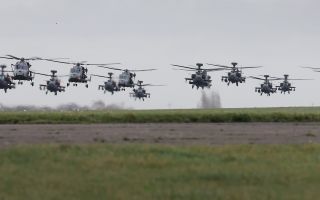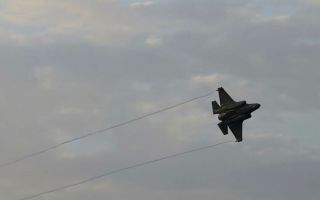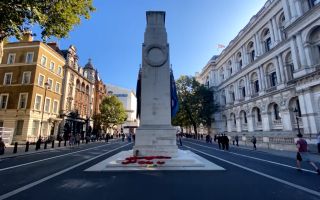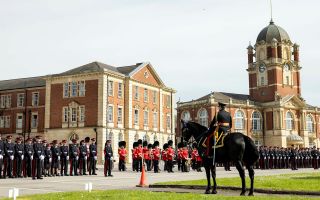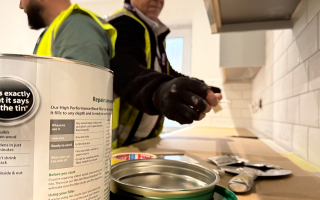Tri-Service
Comment: David Cameron And The UK's Policy On Syria
An old United Nations hand last week asked a close ally, "do you know what UK Syria policy is?" His colleague nodded solemnly "Of course". The old UN hand replied "No. Nor do I".
It was not a bad question, or answer. With a shift of emphasis, the British still say Assad must go but add "eventually" while IS is number one target "hopefully".
Against that background, later this week an inquiry begins inside the British Parliament to establish the government's policy on Syria. Given the events of the past seven days it is quite possible that no one knows the answer, including Prime Minister Cameron. He will, but not yet.
Importantly, the inquiry wishes to know what 'is' the policy rather than what 'was' the policy.
Nevertheless, the introduction to the inquiry must first establish the following: Why did Britain back the anti-Assad rebellion? Why did Prime Minister Cameron agree so easily to support the rebels that wanted President Assad out?
The inquiry may well provide a question beyond its terms of reference and one that few would have expected to ask a year ago.
It is this: Will Syria turn out to have been Cameron's dirty dossier war?
Criticising how Cameron & Co got the UK into the latest position on Syria will not help resolve the crisis. But we should find out how the policy came about. If for no other reason than trying to judge the standard of analysis in Downing Street that will be advising Cameron where to go from here.
The House of Commons Foreign Affairs Committee of all-Party lawmakers will have before it military and academical witnesses as well as Intelligence evidence.
The base line to the inquiry is simple: Was the original decision to support anti-Assad rebels taken too quickly and based on poor or even corrupted analysis of Intelligence assessments?
The original protests against Assad were not taking Syria into a civil war - it became one because of UK/US promises to back the rebellion.
Does the British government now think that the United Kingdom and the United States should have left the Syrian protest to come to its own conclusion?
Given the above, and the intervention of Russia's President Putin, what today is British policy on Syria?
Comment: Russia Is Now At War With Syria
This is a major evidence-taking exercise by the Select Committee under its new chairman, the Conservative MP and former Minister Crispin Blunt. His Committee is balanced and its members well informed. It will have to be.
Some witnesses will, by their established positions, declare whatever the circumstances Assad has to go, just as Tony Blair declared the Gulf War was justified to depose Saddam Hussein. Therefore the UK role against Assad's forces has been the correct one.
The Committee must first discover the original grounds for becoming sponsors of the rebellion and if they were based on sound Intelligence analysis or simply teaming up with US policy.
That sorted, the Committee can be in a more reasonable position to judge the UK's present policy towards Syria.
The present picture suggests something like this: Four and a half years ago the UK supported the Syrian rebels without a sound analysis of what was really going and where the rebellion would lead.
The level of a threat by Islamic State was not then a factor, but today it is.
President Assad with Russian and more significantly Iranian help is still there even though he has lost much of his territory, an important point that Assad himself recognises publicly.
Russia now dominates Western thinking as to what happens next.
So the obvious statement to the Committee is that all that went before was simply that, stuff that went before, and now is now.
But we are where we are because of miscalculation and shabby scholarship of Intelligence analysis. Broadly speaking the same people who made the misjudgements are still advising the same political leaders.
So, we should recognise that the attempt to define British Syrian policy is about the same as the countryman's advice to the bewildered traveller: "To get where you want to go I wouldn't start from here."
And there we have the problem. When the Syrian conflict began there was no Putin input to worry about. Today Britain has to declare its Syria policy by accepting that it is not certain what it can achieve. Moreover just one military miscalculation could explode that policy.
The Committee's task is not about political point scoring. It is not about handing out blame. It is to tell us if our leadership is capable of making the judgements that will cope with what has become an international crises of considerable proportions.
The Prime Minister says the first duty of Government is the security of the nation. The first hope of the nation is that it has a government that can deliver on that promise.
The recent record says that may be a false hope.
More from Forces.tv: Syria Drone Strike - The Repercussions


